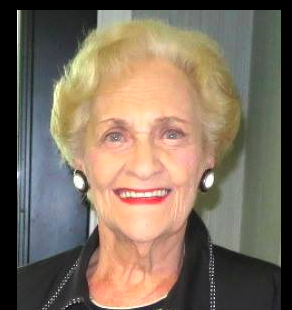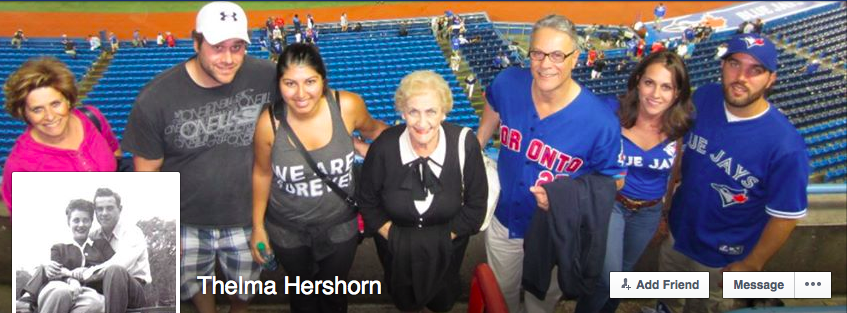Facebook: new gen of users face new issues
 Those who think seniors aren’t technologically inclined haven’t seen the 90+ year olds like Thelma Hershorn who counts on Facebook to show off her baseball chops and keep up with her grand-daughter in Brazil.
Those who think seniors aren’t technologically inclined haven’t seen the 90+ year olds like Thelma Hershorn who counts on Facebook to show off her baseball chops and keep up with her grand-daughter in Brazil.
The Next Gen of Facebook users: 65+
According to Pew Research Center:
for the first time, more than half of all online adults 65 and older (56%) use Facebook. This represents 31% of all seniors
This bodes well for technology uptake amongst the sexa-, septua- and octo-generians of the much touted Grey Tsunami. However, the older generations taking to social media also raises the question of what happens to digital selves when they’re no longer alive.
Facebook is now rolling out an option that lets users choose to have their account wiped out upon death. The other option is to designate a hand-selected “legacy contact.” Facebook has also been used as a place for tributes and memorials, in the same spirit as a Funeral Home guest book but until recently, after a person’s death, Facebook froze the account.
Social Media to effect change
Pew Research has the story of how one father used another social media platform – YouTube – to lobby Facebook. The result: a change of policy. Facebook now allows users to appoint an “heir” which lets users appoint someone to manage their account after they die.
John Berlin couldn’t watch the video he most wanted to see – that of his deceased son, Jesse. Facebook hadn’t enabled the videos for “memorialized” accounts, profiles with modified settings when a user dies. So Berlin posted a video on YouTube pleading with Facebook to make him Jesse’s video.
In response, Facebook now takes requests for “Look Back” videos of users who have passed away. The company also modified the administration of memorial accounts to honor the original visibility settings of the deceased’s profile. Both of these changes are yet another example of how technology companies are writing the rules as they go in the largely unfamiliar territory of managing one’s digital life after death.
Should you want your digital self to continue to survive and thrive in your spirit after you’re gong, another tech solution has the answer: Eterni.me purports to learn your personality so it can post as you when you’re dead:
What if you could live on forever as a digital avatar? And people in the future could actually interact with your memories, stories and ideas, almost as if they were talking to you?
Think about it: while still in private testing mode, it’s already oversubscribed with 30,000+ still-living people signed up.
